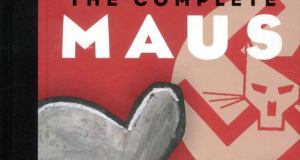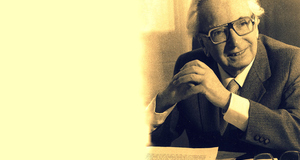Moral Adaptation in Primo Levi's "Survival in Auschwitz"
By
2010, Vol. 2 No. 03 | pg. 1/1
KEYWORDS:
The holocaust proved that morality is adaptable in extreme circumstances. Traditional morality ceased to be so within the barbed wire of the concentration camps. Within the camps, prisoners were not treated like humans and therefore adapted animalistic behavior necessary to survive. The “ordinary moral world” (86) Primo Levi cites in Survival in Auschwitz, ceases to exist; the meanings and applications of words like “good,” “evil,” “just,” and “unjust” begin to fuse and the differences between these polar opposites become unclear. To survive in Auschwitz required a purging of one’s self-respect and human dignity. Exposure to perpetual dehumanization inevitably leads one to be dehumanized, forcing one to resort to mental, physical, and social adaptation in order to retain one’s life and personality. It is in this adaptation that the line separating right and wrong begins to blur. In the face of stark hopelessness and certainty of death, retaining one’s mental stability becomes a daunting task. Living in grotesque conditions and being subjected to brutal beatings hurts not only the body but the mind as well. To dwell on the injustice being committed would be a pointless attempt as the word “just” has no application in the Lager, a German word Levi uses to refer to the concentration camps, literally meaning "warehouse".Levi demonstrates in the text that in order to retain one’s mental sanity, one must focus on small distractions. To harbor desires inside the Lager is a mental death-sentence, as no desire will realistically be fulfilled. Therefore, to dwell on hunger and to hope for food is to subject oneself to mental torture as sufficient food will never be offered. However, distracting one’s mind with small goals, such as surviving until spring, can help one to let go of unrealistic desires: “[…] as soon as the cold, which throughout the winter had seemed our only enemy, had ceased, we became aware of our hunger” (74). By training their minds to focus on the biting cold throughout the winter, the prisoners were able to distract themselves from their hunger, slightly alleviating their pain. By focusing on “material cares” (17) Levi contends that the prisoners can become distracted from their “misfortunes and make [their] consciousness of them intermittent and hence supportable” (17). By focusing the power of one’s mind on less severe issues, hopelessness becomes mentally lessened and one is assisted in forfeiting the notion of justice. It is only in a world of queer morals, like the Lager, that to enter insane would be considered a survivor’s advantage. In the text, Levi tells the story of a man who “has resisted the annihilation from within because he is insane. […] He is a survivor: he is the most adaptable, the human type most suited to this way of living” (97). This insane man, Elias, does not harbor pre-conceived notions of “normal morality,” allowing him to suffer without deteriorating mentally. His mad mind doesn’t conceive justice, and therefore he is able to work without lament. The adaptability of the mind is essential to survival in Auschwitz, and application of this adaption to physical pain and suffering is of equal importance. The physical pains, inflicted by both forced labor and savage beatings, coupled with detestable conditions, make living in the Lager with human dignity and self respect a difficult challenge. In order to survive such squalid conditions one must force oneself to use the pain and suffering as stimuli for survival; one must not lament on the disagreeableness of certain discomforts but rather reflect, no matter how difficult to conceive, on how it could be worse. In doing so one must turn a blind eye to evil and consider something such as a beating by a Kapo as a necessary good. “Some of them beat us from pure bestiality and violence, but others beat us when we are under a load almost lovingly, accompanying the blows with exhortations, as cart-drivers do with willing horses” (67). Levi contends that although painful, being beaten is a necessary stimulant in order to complete one’s work and be viewed as an “economically useful Jew” (46). Though it is an evil act to beat another person, there is an essential good within this evil, a warping of traditional moral code. It is morally axiomatic that no one should have to make the choice between having one’s feet covered in human waste or to be forced to sleep by the putrid feet of a bunkmate who has suffered that fate. However, in a passage about carrying out the bucket of waste at night, Levi states that “it is always preferable that we, and not our neighbor, be ordered to do it” (62). In order to survive one must forego the notion that it is a basic human right that a person should not have to endure humiliating un-cleanliness. A comfortable sleep is also a basic human right, but in the Lager, one is forced to physically contort one’s body only to achieve unbearable discomfort: “So I adapt myself to lie like this, forced into immobility, half-lying on the wooden edge” (59). To dwell on the physical pains and sufferings, lamentable in any traditional society, is an endeavor which will only augment that pain. However, physical and moral adaptations aren’t sufficient for survival as one’s social life still requires balance. Within the Lager, a society exists which embraces moral transgressions necessary for survival. In order to live peaceably, one must adapt one’s social and behavioral needs. Levi posits this society within the text: Thousands of individuals, differing in age, condition, origin, language, culture, and customs, are enclosed within barbed wire: there they live a regular, controlled life which is identical for all and inadequate to all needs, and which is more rigorous than any experimenter could have set up to establish what is essential and what adventitious to the conduct of the human animal in the struggle for life. (87) Because so many people from so many backgrounds and customs are thrown into one common situation, preconceived definitions of “good” and “evil” and “just” and “unjust” become unusable. Morality is not universal and therefore cannot be applied to this concentrated society. One method for survival this community adopts is the formation of an inner-camp marketplace where goods are pilfered and exchanged. To participate requires tact and craftiness. Levi describes “specialists in kitchen thefts” whose “jackets [are] swollen with strange bulges” (79) and brags about how it was his idea to “steal the rolls of graph-paper […] and offer them to the Medical chief of Ka-Be [to] be used as paper for pulse-temperature charts” (86). Both of these forms of theft require a leap of traditional moral values which dictate that stealing is wrong, but in both cases, the goods are being put to use to better the lives of others. Such is the nature of this inner-camp marketplace. The moral confusion of the marketplace is summed up by Levi in the text: “theft in Buna, punished by the civil discretion, is authorized and encouraged by the SS; theft in camp, severely repressed by the SS, is considered by the civilians as a normal exchange operation; theft among the Haftlinge is generally punished, but the punishment strikes the thief and the victim with equal gravity” (86). With so many different perspectives of what is good and evil, just and unjust, it would be virtually impossible to discern what is right. Therefore, the prisoners are left to do what they must to survive. Inside the Lager, justice ceases to be a realistic expectation. Saturated by such cruelty, and evil, such dehumanization and inhumane mistreatment, it would be a far-fetched hope for traditional morality to survive in the society of the Haftlinge. In order to survive life inside the Lager, one must forego preconceived notions of morality and adapt the definitions of right and wrong to cater to one’s present needs. The intrinsic rights of a human being are taken at the doorstep of the Lager, and only an animal enters, left to fend for itself. ReferenecsLevi, Primo. Survival in Auschwitz. New York, NY: Macmillan Publishing Company, 1993. Print. Suggested Reading from Inquiries Journal
Inquiries Journal provides undergraduate and graduate students around the world a platform for the wide dissemination of academic work over a range of core disciplines. Representing the work of students from hundreds of institutions around the globe, Inquiries Journal's large database of academic articles is completely free. Learn more | Blog | Submit Latest in Literature |
















